How to Perform a Home Safety Check-Up
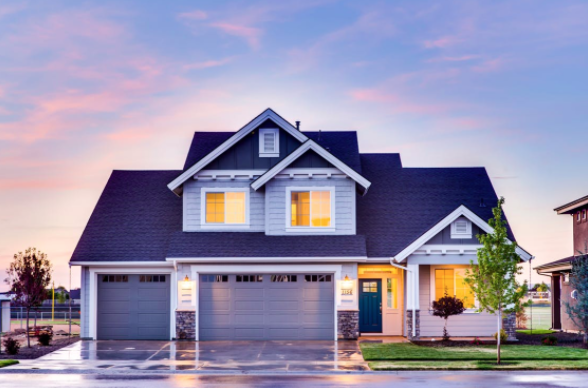
Keeping your home up and running can feel like a full-time job. In between laundry, cooking, cleaning, and keeping up with life in general, keeping up with the smoke detector can fall pretty low on the list. But if an emergency, you’ll wish you had known how to perform a home safety check-up.
Remembering to do a few safety check-ups can easily slip your mind, so consider this your reminder on how and what to check up on in your home. You should be checking up on these things once a month or so. That may seem like a lot, but it can save you time and money in the long run.
Follow these steps and you’ll know how to perform a home safety check-up in no time:
Test Smoke Detectors
First of all, test both your smoke and carbon monoxide detectors. You want to make sure that there’s nothing wrong with them and that the batteries are still alive. A few minutes out of your day could protect you and your loved ones from fires and poisoning.
Check Flashlights and Batteries
In the emergency kit you (hopefully) have for your home, there should be a flashlight or two. Take a few minutes to make sure that the flashlights and extra batteries you packed are still working. It’s not a bad time to make sure that the rest of your kit is holding up, too!
Inspect Fire Extinguishers
Make sure you can easily access your fire extinguisher, and that the locking pin is intact and the tamper seal has not been broken. Check out the extinguisher itself for signs of corrosion or leakage. Lastly, take a look at the pressure gauge to make sure that it is still in the operable position.
Check Switches and Outlets
If your switches or outlets are not working, it could be bad news for your home. Faulty wiring is a big fire hazard, and not working is just one of the signs of wiring gone wrong. If the switch or outlet is warm, discolored, or noisy, then there’s probably something wrong with your electric system. Have a professional come check it out and make any necessary repairs.
Replace Frayed Cords
Lastly, take a look at your electric cords and make sure that they are all still looking good. Frayed cords are a major fire hazard, especially depending on their location. When cords are smushed underneath furniture or behind the curtains are dangerous. Look around about once a month to make sure that’s not the case for your wires. If cords have frayed, replace them as quickly as possible.
Knowing how to perform a home safety check-up could make all the difference in preventing hazards from occurring in your home. Keep your home, family, and possessions safe by performing a comprehensive home safety check-up once a month. Want to learn more about protecting your home and family? Contact our Sonitrol security specialists today.
4 Simple Ways to Secure Your Home
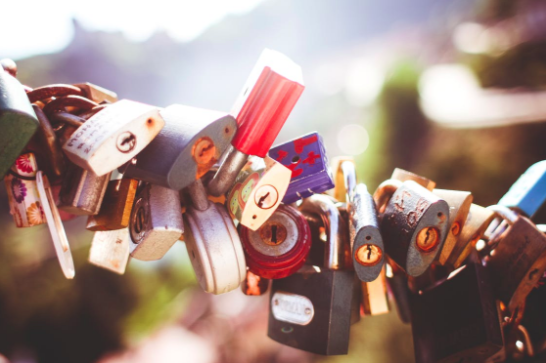
You can’t put a price on safety for you and your loved ones, but we can’t deny that saving money is a big factor in daily life. That’s why we want to share a few simple ways to secure your home and protect your loved ones and valuables without breaking the bank.
Security doesn’t need to be expensive; you can make a few simple changes that will protect you and your family for years.
Get New Screws
When it comes to simple ways to secure your home, changing door screws is easy and affordable. Most door screws provided are typically a measly 1/2 inch long. So when a burglar pays you a visit, these screws aren’t going to stop them from kicking down your door. For just a few dollars at any hardware store, you can buy longer screws and use those instead of the tiny ones provided.
Deadbolt High Up
Kids seem to love to try to escape, which is never a good thing, especially for a parent who might be busy in the kitchen while their little one is roaming around. Keep kids in arm’s reach by installing a deadbolt high off the ground. That way, even if they manage to reach the door handle, they can’t open the door fully and run off.
Lock Sliding Glass Doors
Most sliding glass doors can simply be lifted off their hinges, making it an easy way for burglars to enter and exit unnoticed. Instead of just putting a stick in the track, which won’t stop them from being lifted anyways, get a lock that can prevent your glass door from being removed from its tracks.
Pay a Visit to the Locksmith
Depending on how old your lock is, it could leave your home susceptible. If it’s five years or older, it definitely cannot stand up to lock bumping. So, take your locks to a locksmith to have anti-bump pins installed, or replace them with bump resistant locks.
While these simple ways to secure your home will offer extra protection, they are not foolproof. But the best way to protect your home and loved ones is with a comprehensive security system. If you have any questions or want to talk to us about securing your home even further with our alarm systems, don’t hesitate to contact Sonitrol today.
What to Keep in Your Emergency Kit
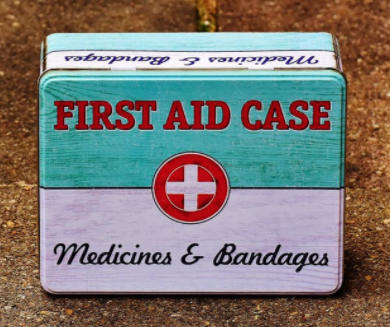
Emergencies can strike at any time, whether you’re ready or not. That’s why it’s so important to have an emergency kit ready at all times, and to understand what to keep in your emergency kit.
Here’s a list of items you should keep in your emergency kit:
Non-Perishable Food
If you can’t access the grocery store, your refrigerator goes out, or if some other unforeseen event takes place, you should have enough food to last you a few days.
Can Opener
Make sure you have a manual can opener to open up all of your non-perishable goods.
Water
The general rule of thumb is to have one gallon of water per person per day. So, make sure that you have enough to prevent everyone in your household from becoming dehydrated, which could take things from bad to worse very quickly.
Radio
Keep up with the news and alerts of whatever disaster has just struck with a battery-powered or hand-spun radio.
Flashlight and/or Candles
If the electricity is out, you’ll need to see what’s going on.
Extra Batteries
Depending on how long you’re in an emergency, your radio and flashlight will probably die. Keep enough extra batteries in your emergency kit to keep them going as long as you’ll need.
Wrench/Pliers
You never know exactly what sort of situation you’ll be in, so it’s best to have some sort of tool on you.
Medication
If any of your family members are on medication they absolutely need to take, try to get an extra prescription to keep on hand in case of an emergency.
First Aid Kit
Band-aids, antibiotic ointment, and antiseptic wipes are just a few things that need to be in your first-aid kit. The Red Cross has an extensive list of supplies you should keep in your first-aid kit.
Whistle
If you’re in a dangerous situation, you might need to alert someone to where you are, or call for help. Keep a whistle in your kit, just in case.
Dust Mask
Keep dust masks in case damage occurs to your home or whatever building you’re stuck in. Make sure that you have enough dust masks for your entire family to prevent breathing in any harmful chemicals and excessive dust particles.
Maps
Keep a few maps of the local area in case you’re in the car and have a dead phone. It’s a good idea to have a backup in the case your electronic navigation system isn’t working.
Battery/Solar Phone Charger
Keep your phone alive with a battery-powered or a solar phone charger. This one is important in case you need to call for help, or for directions to the nearest hotel or family member.
Toiletries
Having toiletries like toilet paper, toothbrushes, and toothpaste on hand can help keep everyone calm in an emergency.
Pet Food/Water/Supplies
If you have pets, look out for them and keep food and water on hand for them. A few toys and bones can help keep them busy and out of your hair in a stressful situation.
With these items in your emergency kit, you’ll be ready for it if an emergency strikes– no matter what. Make sure to keep your kit in something easy to carry, like a backpack or a waterproof container, and somewhere cool, dry and easily accessible, like a closet.
These are just the basics when it comes to what to keep in your emergency kit. You may want to add more items depending on you and your family’s specific needs. While it’s impossible to be completely prepared for an emergency situation, having these items on hand will help reduce stress and worry.
6 Simple Workplace Safety Tips
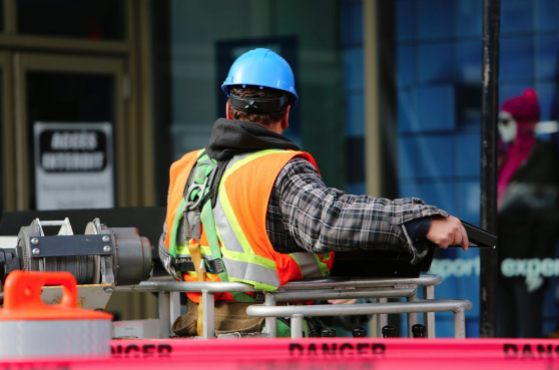
Our workplaces often feel like a second home. Or at least it’s where we spend the majority of our time. That’s why practicing the following workplace safety tips is so important. Keeping your office safe keeps you safe, which is our main priority at Sonitrol.
While we have alarms and security systems that watch for outside threats, there are dangers in the workplace that you may not realize affect you from day to day. While we keep an eye out for intruders, here are a few easy ways that you can protect yourself in the workplace:
Practice proper posture
Whether you work at a desk or out in the field, your spine is being put to use throughout the day. Keep your vertebrae happy by sitting with your shoulders over your hips. Have heavy lifting to do on the job? Use the correct form when lifting or moving heavy items to ensure that you don’t hurt yourself.
Take regular breaks
Taking regular breaks throughout the day helps you stay alert, both mentally and physically. Take a walk around the office or do a few stretches to keep the blood flowing, and if you’re working at a computer, make sure you spend a few minutes each hour not staring at a screen.
Use machines properly
Make sure to utilize machinery properly. Whether it’s a forklift or a laptop, there’s a risk in using machines day-to-day. If you work at a desk, make sure that your computer’s exhaust isn’t blocked, or it could potentially cause a fire. In the case of heavy machinery, make sure to read the manuals for each one to make sure that you are using and maintaining it properly.
Keep exits accessible
One of the biggest dangers of the workplace is a blocked fire exit. This happens far too often, as most people forget or get lazy about blocking a path in case of an emergency. Go throughout the office every month or so and make sure that all of the emergency exits are easily accessible. You should also keep a fire plan in place, making sure that everyone knows where they should go in case of a fire.
Utilize the right equipment
Make sure that you’re properly protected for whatever job you may be tackling. If you’re dealing with toxic chemicals, wear a breathing mask at all times, and if you’re on a slippery surface, put on your non-skid shoes. Whatever occasion arises, make sure that you can handle it with the proper equipment.
Avoid and treat stress
Your mental health is just as important as your physical well-being, which is why it’s so important to keep your stress levels in check. Stress-related outbursts are threatening in a workplace. So, if you’re feeling particularly overwhelmed at any point, it may be a good idea to take a short break from your desk, or use a sick day to rest and recover. If issues with stress persist, discuss things with your boss or a Human Resources representative.
With how much time we spend at our office or workplace, it’s important that we are doing everything possible to protect ourselves- both physically and mentally. Use these tips to help protect yourself at work, and Sonitrol will take care of the rest.
Unexpected Fire Hazards in the Home

Don’t leave the kitchen when you’re cooking and blow out candles when you go to bed. These are the day-to-day fire prevention measures we know so well. But there are actually unexpected fire hazards in your home that you may be overlooking, and to your detriment.
From the kitchen to the bedroom, there are opportunities for a fire to break out. In fact, 352,000 home fires occurred in 2016. Luckily, there are easy preventative measures you can take to keep that from happening. Make sure that you keep your home safe and sound by keeping an eye on these unexpected fire hazards:
Crumbs in the Toaster
You’re in a hurry in the morning and can’t clean out the toaster, which doesn’t seem like a big deal. Too many days like this, though, and those little crumbs can turn into a problem. A buildup of crumbs in your toaster can actually set off your fire alarm, and even spark into a kitchen fire.
Fairy Lights
Those fairy lights are pretty, but they can pose a threat to your home. Just make sure that they’re unplugged when not in use, and turn them off before you go to sleep to prevent a fire breaking out when you’re not aware.
Dust
Next time you clean up around the house, make sure that you don’t skip dusting. If dust builds up around electrical sockets or heaters, it can start a fire. It might seem like just another thing on your to-do list, but in the long run, it’s definitely better than having to clean up the ashes from a fire!
Glassware
The windowsill may seem like the perfect place to display your favorite glass vase or an ornament or two, but beware. If your window gets a lot of sun, the glass could act as a magnifier. If the rays become concentrated on the rug or curtain, a fire could start. So, it might be smart to move the glassware from the window to somewhere the light doesn’t strike it quite so much.
Laptop
If you own a laptop, you know how quickly it can heat up. That’s why it’s so important to keep it well-ventilated. If the cooling vents are blocked, then enough heat could be produced to start a fire. Try to avoid soft surfaces, like a cushion or a blanket, that could prevent the air from flowing and use your laptop on a desk or another flat surface.
Dryer Lint
Make sure you take out the lint in your dryer before you start another load! Too much lint buildup can clog your dryer, and adding that to the heat used to dry your clothes is a bad combination.
Frayed Electrical Cords
Take inventory of your electrical cords; if they’re frayed and showing the wires, it might be time to invest in new ones. Frayed electrical cords are a big fire hazard, and if you continue to use them, the risk only increases. Prevent your cords from fraying by taking care of them. Don’t put them underneath the carpet where they can be tread on and keep them untangled.
Taking preventative measures against these unexpected fire hazards can prevent significant damage to your home and belongings. While it may seem like a lot of work, it will save you time, money, and heartache in the long run. So keep your home safe by keeping an eye out for these unexpected fire hazards in your home.
5 Ways to Protect Your Home During Hurricane Season

Living near the coast is amazing, until hurricane season hits. Suddenly, threatening storms are the norm, and it can go from a day at the beach to a flooded drive home in an instant. The 2017 hurricane season is calling for at least fourteen named storms, including six hurricanes and two major hurricanes.
It’s important to make sure that you have everything in place to protect your home during these storms. Here are a few tips to protect your home during hurricane season:
Brace the building
Protect your home’s structure by making sure you reinforce its weakest points. Garage doors are one of the most vulnerable parts of your house, so securing it should be a main priority. Garage door braces are easy to find and install, and they can help keep your home safe in the midst of a big storm.
Try to board your windows and doors to prevent wind and rain from coming in. You can also keep your roof in place with hurricane straps.
Trim your trees
Prevent stray branches from wreaking havoc on your (or your neighbor’s!) home by trimming your trees before a hurricane arrives. Trim dead branches and any limbs that are hanging over your house. It may seem like a hassle now, but it’s considerably cheaper than having to fix a hole in your roof or hauling off a fallen tree!
Secure the porch
Outdoor furniture can become a missile in the middle of a storm. Try to find a new home for your porch furnishings before a hurricane comes, or secure furniture to ensure it won’t crash into your house. Stray lawn toys and bird feeders should be put away or secured, too.
Seal up holes
Rain damage can seep in through the tiniest of cracks, so make sure that all the little holes in your house are closed up before a hurricane hits. Cable and other electrical wires are common culprits of leaving holes behind, so be sure to check those first.
Clear rain gutters
Let the rain gutters do their job and clear them out before a storm comes. If your gutters aren’t clear, then the buildup of rainwater can quickly cause damage to your gutters and even your roof. Plus, checking the gutters over before a storm gives you time to see if there are any problems that need to be fixed!
At Sonitrol SC, we want to make sure our coastal neighbors know how to properly protect their homes, from hurricanes or burglars. Have more questions about home security and protection? Contact Sonitrol today to see how we can help you.
How to Protect Your Home While You’re on Vacation

Summer months are carefree and as the temperatures rise, people become a lot more laidback. Unfortunately, these happy-go-lucky attitudes have a bit of a negative effect, as July and August are the most common months for break-ins. As a result, it’s important to know how you can protect your home while you’re on vacation.
Homes are left for weeks at a time, and most people fail to use basic tactics to prevent these summer burglaries. Keep your belongings safe and protect your home while you’re on vacation with these easy tricks.
Hire a house-sitter
While a bit on the pricey side, the most secure way to make sure that burglars don’t target your home is to have someone staying there. A house-sitter keeps your home running, from watering plants and getting the mail to feeding pets, which prevents burglars from thinking that there’s no one home. Not an option? Ask some friends or family to stop by for help with these tasks, instead.
Plug in an electrical timer
A dark house is a clear sign that no one’s home, but it’s expensive to leave lights on for the entire time you’re away. A good alternative is an electrical timer, which you can plug into the wall and set to turn your lights on and off at random times.
Stop the mail
Having piles of mail sticking out of your mailbox is a surefire sign no one is home. If you don’t have someone coming by to check on your house every now and again, then you can ask the post office to stop your mail for specific dates. If you’re ordering packages, request to pick them up instead of having them dropped off at your house.
Remove spare keys
You won’t be home, so that spare key isn’t necessary! Hide your key somewhere in your house instead of leaving it out where strangers could find it when you’re gone. If you have someone coming by, give them their own copy of your house key to lessen the chance for someone else finding it.
Put your valuables in a safe
If you haven’t already, put your valuables in a wall safe before you leave. If burglars do end up coming in, they won’t be able to get to your valuable possessions.
Privatize your social media
It’s tempting to post every detail of your vacation on social media, but it’s better to wait until you get home to post that sunset picture. Check-ins, posts, and geotags all alert burglars that you aren’t at home. If you do feel the need to post, make sure that your account is on private so that only your selected friends can see that you’re away.
Keep your blinds open
One of the most common mistakes that people make is closing their blinds when they leave for vacation. A closed up house is a tip to burglars, especially if you normally keep your blinds open. By leaving the blinds up, it seems like you’re home and going about your day like normal. Just be sure to hide your valuables from view.
Another great way to protect your home while you’re on vacation? Installing a verified security system from Sonitrol. Enjoy your vacation knowing that your home is safe in Sonitrol’s hands.
Going Above and Beyond a Security System
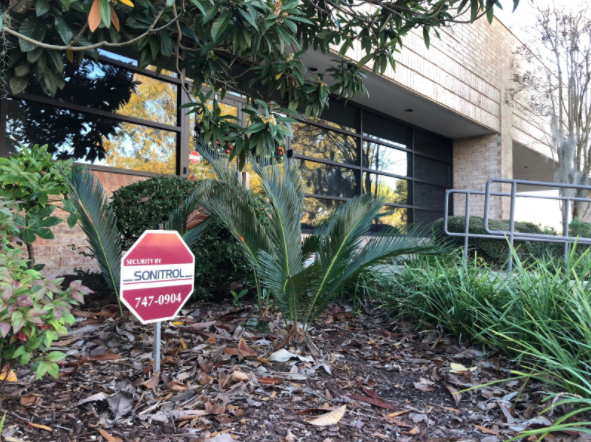
Did you know police officers respond to an average of 36 million security system alarms each year, costing about 2 billion dollars? That’s a lot of money. And over 90% of the calls the police get are false alarms, costing time as well as money.
False alarms prevent true burglaries from being stopped, keeping police from stopping crimes that are actually happening. Fortunately, Sonitrol’s security systems utilize technology to reduce false alarms, as well as other common security system issues.
Here are a few of the ways Sonitrol’s system goes above and beyond the average security measures:
Using Audio Technology
Firstly, Sonitrol’s verified alarm systems surpass standard security measures to stop crime. When something triggers your alarm, our verified security systems allow our monitoring professionals to access audio and assess what is happening. Since our alarms are sound-based, we can tell if it’s just a case of a forgotten code or if it’s something more serious.
Reducing False Alarms
In the case of a false alarm, our monitoring professionals can simply reset the system without bothering anyone. But if there is a break-in, we can dispatch the police immediately and keep them updated with the situation in real-time. Thanks to this system, Sonitrol has the highest apprehension rate and lowest false alarm rate in the industry.
Achieving Faster Response Times
Sonitrol’s goal is to reduce false alarms and increase criminal apprehension. With the aid of police officers, our verified response technology is the leader in the industry. Non-verified systems can expect up to a 45-minute response time from the police, while Sonitrol’s Verified Response system is over 5 times faster with responses taking an average of 8 minutes.
Apprehending More Criminals
Finally, Sonitrol security systems apprehend more criminals. With over 173,000 apprehensions, Sonitrol systems average about 1 apprehension every 111 minutes. 20% of these apprehensions were made before the criminals even entered the building. Non-verified alarms waste police time, resources, and money with an average of less than 1% apprehension rate.
These statistics prove that Sonitrol goes above and beyond the standards for security systems. Protect your home or business with a verified security system from Sonitrol. Contact our sales department today!
7 Ways to Protect Your Security Alarm Code
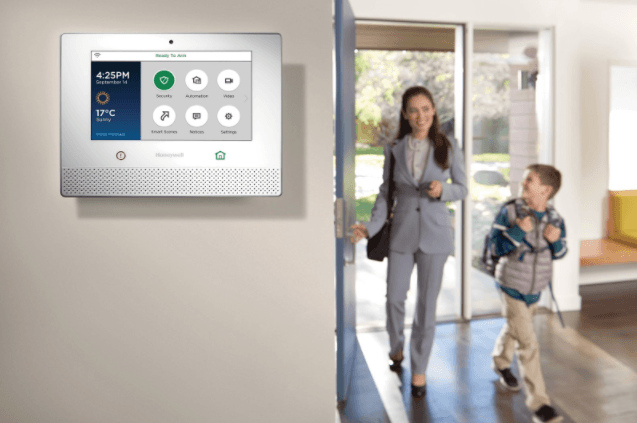
The most important part of your security system is the passcode. These four digits are like a key to your house. The more secure these numbers are, the more secure your home is. From forgotten passwords to false alarms, Sonitrol has experience dealing with all ranges of security alarm code problems.
Here are some tips to protect your security alarm codes and keep your home safe.
Stay away from commonly used codes
Stand out from the crowd and pick a password that protects you. A DataGenetics study of 4-digit passwords found that almost 11% of the 3.4 million security alarm codes that were surveyed were “1234.” Try to avoid patterns, like “2580,” which goes straight down. Also avoid sequences taken from dates, social security digits, and phone numbers.
Pick a code you’ll easily remember
To choose the code that will protect you best, make sure that you can actually remember it. Our tips for choosing a security alarm code you can remember? Spell something out with your code, or use a mnemonic device to remember it.
For example, you can remember the seemingly random selection of numbers “5397” by knowing those numbers spell out the word “keys” on the keypad. Now, that random series is a word you can easily remember.
Give each user their own individual code
While it may seem easier to use the same set of numbers for every user, it’s actually safer to pick a unique set of numbers for everyone using the system. By continuing to randomize the codes that are being used, it makes each one a little bit more difficult for intruders to crack.
Do not write down your security alarm code
Writing down your code is dangerous! It may seem like common knowledge to avoid putting your passcode by the keypad, but it’s important to be reminded of the fact. If you cannot remember the code without a note, do not just write down the four digits.
Try to conceal it by putting other random numbers in. If you know that every other number is your code, “6481” becomes “060408010,” so that if that note does fall into the wrong hands, it is significantly more difficult to guess the password.
Don’t share your code with others
Sharing is caring, but keep your code to yourself! By letting friends and colleagues know about your security passcode, you are putting yourself at a higher risk. Treat your security code like a key to your house, and keep it close to you.
Update your code frequently
Finally, you should change your code at least twice a year. And if there’s ever any worry someone has accessed your code, update your security alarm code immediately.Worried about forgetting your new passcode? Just change one digit from your old code to make it easier to recall.
If codes still seem a little too difficult to remember, there are other options! Sonitrol offers alternatives like a mobile app, a card, or a key fob. If you need further assistance, be sure to contact a Sonitrol sales consultant for your free security assessment. Call us today!
What Is an Electronic Security System?
In the past, the only form of home security available was a door lock that had to be opened with a key. Because thieves don’t use keys to enter your home, security has upgraded significantly since then. There are home security systems that set off alarms when someone walks through a door or enters through a window.
An electronic security system uses power – either through a battery or electrical outlet – in order to operate. This term refers to any electronic equipment that performs access control, alarms, surveillance, and other security operations. Closed-circuit TVs (CCTVs) and video cameras are also frequently used. There is also the ability to view your home or business while you’re away, thanks to your smartphone or laptop.
Electronic security systems are found in a variety of environments. Corporate workplaces, commercial offices, retail stores, medical facilities, gas stations, railways, and other places use these systems to control access, sense fires, view activities of employees, reduce theft, and much more.
CCTVs
This type of surveillance system uses cameras, microphones, alarms, and perhaps even smoke detectors to detect any unusual activity from a remote place. An internet connection transfers images and events to a CCTV, which allows security personnel to view employees or customers in a store and detect theft or other crimes.
Security Cameras
Security cameras can come in handy. While they may seem intrusive, they can protect your home and offer many benefits whether you’re at home or away. When you’re at home, you can be in one room and check on the children in another room without having to get up. If someone is at the door, you can see who it is from any room in your home.
While you’re away, you can use security cameras to catch thieves, see what’s going on at home, watch the babysitter, keep an eye on construction workers, watch your kids, and more. Not all security companies offer video monitoring, so check around if this is something you’d like to have.
What Does Bypass Mean on an Alarm System?
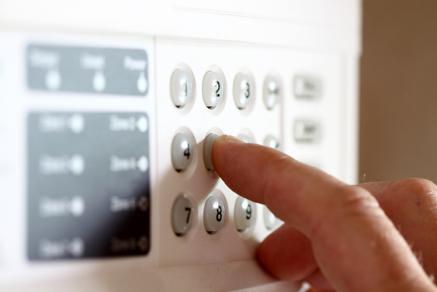
Homes and commercial buildings often have alarm systems to deter thieves and protect assets. Alarm systems often have many controls, which can make it difficult for homeowners and employers to know if they’re getting enough protection.
One of the functions you may see on your alarm system is the term “bypass.” Bypass means to deactivate security in one or more areas – or zones – in your home or business. This means that if anyone enters a bypassed area, the alarm won’t sound. That’s because the security system is not monitoring these zones.
You might find this an unusual function. After all, who would want a specific area to be left unsecured?
When Is a Bypass Useful?
The bypass function is useful for a couple reasons. Those who are remodeling an area of their office or home may want to allow access to this area. This would allow contractors and other workers to enter and exit the room freely without triggering the alarm. You can simply bypass the areas in which the people would be working, instead of turning off the entire alarm system and leaving your home unprotected. The areas of the home not bypassed would still be monitored by the alarm system.
Warehouse Safety: Tips for a Safe Warehouse Workplace

Have you been tasked with securing a safe warehouse workplace? The assignment is challenging, but one that you can exceed with enough effort. There are a few steps to take to ensure you’re on the right path. Warehouses are extensive facilities, and much can go wrong. That’s why an organized strategy yields optimal results.
The types of incidents that can happen are diverse. Anything from forklift accidents to chemical burns is possible in a warehouse. For that reason, several government organizations offer checklists on precautions to take. It pays to avail yourself of as much information as possible on the subject. Sometimes, common sense isn’t enough, so following specific guidelines is a smart plan.
You Can’t Afford to Ignore the Importance of Safety Equipment
One of the quickest ways to cause problems is having people lift items that are too heavy. There’s a reason forklifts and other essential equipment exist. Use the right tools to ensure safety at all times. You must utilize protective equipment and install warning signs. Without the basics in place, it will be impossible to create a genuinely safe environment. Warehouses are fraught with peril, so be as thorough as possible.
Proper Clearance Is Imperative
You can probably imagine why clearance is a crucial aspect of maintaining warehouse safety. A person who’s zooming by on a forklift could suffer serious injuries running into a metal pole. In fact, it’s not difficult to think of a bunch of dangerous situations that arise from negligence. That’s why developing a mindset that focuses on worker safety at all times helps. Managers who keep their heads in the game at all times garner positive results.
Warehouses tend to be fast-moving places with lots going on. Areas that lack the right design or implementation can and do cause major headaches. Don’t allow yourself to forget about this subject. It may not seem glamorous, but employees and visitors need to avoid smashing their head or limb while at your facility. If such incidents do happen, the liability can quickly get out of control.
Ultimate Guide to Choosing a Business Security System
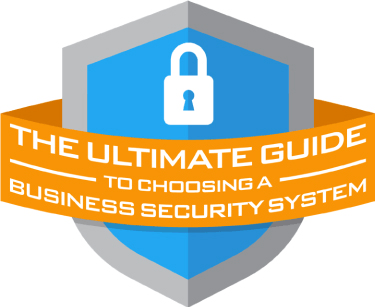 Your business has many needs, including unique security requirements. It’s crucial that you understand what steps to take so that you ensure safety. Start with researching the subject so that you gain a basic understanding of how to secure a business the right way.
Your business has many needs, including unique security requirements. It’s crucial that you understand what steps to take so that you ensure safety. Start with researching the subject so that you gain a basic understanding of how to secure a business the right way.
Top 6 Benefits of Home Security Systems
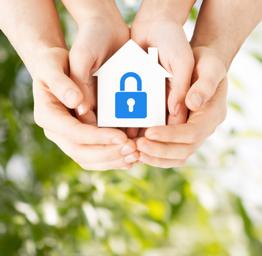
Home security systems are put in place to keep your home, your loved ones, and your prized possessions safe from harm. There are all different kinds of features available when it comes to these security systems, and they can often be tailored to the specific needs of the homeowner. Whether you are looking for video surveillance, integrative features, door sensors, or fire safety, residential security systems are available to meet all of your personal needs.
If you’re not sure whether a home security system is something you’re interested in, consider the top 6 benefits of home security systems to better educate yourself before making a decision:
1. Protecting Your Family
The most valued benefit of a home security system is that it works to protect the loved ones who live within your home. According to burglary statistics, there is someone home in nearly three of every ten burglaries, which could be either an adult or a child. It’s also been reported that of all assaults reported to police, 38% of assaults occurred during a home break-in.
If you want to ensure the safety of your loved ones from burglars, you will certainly benefit from installing an alarm, which is likely to scare away potential dangers from getting too close to your loved ones.
2. Fire Safety
Aside from burglaries, your home can also be subjected to fire hazards that you’ll want to be protected from. One of the added benefits of a home security system is that you can also install a fire security system to keep your home safe from huge loss and damage due to fire and smoke.
It has been reported that cooking equipment is the leading cause of home fires and home fire injuries, while smoking materials such as cigars are the leading cause of fires deaths in the United States. To avoid experiencing injury, death, and huge losses, installing a fire system gives you a huge advantage over potential dangers.
3. Allows Remote Access to Your Home
You might feel safe when you are in your home and you can see that everything is protected, but what about when you’re not around? One of the great benefits of installing a newer home security system is that integrative technology can be put in place so you can always have an eye on your property and loved ones.
Simply bring along an online phone, tablet, or laptop, and you can access information about your home, view the layout, and even monitor the security cameras. If you want to turn on some lights in the evening, these can be set at the click of a button, and you can even change the home’s temperature. Remote access is a huge convenience for homeowners, who can easily check in with their home whether they’re at work, down the street, or around the world.
Tips for Keeping a Safe Office Work Environment

There’s nothing more important than maintaining a work environment that’s safe for everyone. Threats to visitors and staff are always present, so the need to mitigate damage is paramount.
Failure to do so hurts employees’ morale and adds potential liability. Not only that, but injuries can cause tons of monetary damages. Companies that aren’t serious about safety don’t stand a chance of succeeding in business. The good news is that all it takes is some planning to improve the situation.
An Organized Workspace Helps Improve Everything
The layout of your business makes a big difference for safety. Any time there’s a lot of clutter or a disorganized mess, protecting workers is a concern. Slipping, falling, and tripping can all cause significant injuries. Any of these unfortunate incidents can arise from a poor layout.
Improved housekeeping is another way to “clean up” in this area. Having someone ensure that no boxes or other objects are laying around is a sound plan. Any steps you can take to improve the work area has a positive impact on safety.
Follow Tips and Implement Best Practices
Many sources provide tips and best practices about workplace safety. In fact, local, state, and federal departments all propose specific guidelines. It makes sense to adhere to these principles at all times.
If you adopt a plan that exceeds industry standards, it gives your organization an advantage. You can tell potential clients and employees about the benefits of working in your facility. Once you set your mind to achieving excellence in your facility, you’ll see the spirit is contagious!
Uniforms and Signs Are Always Helpful
Signs and standard employee uniforms are important basics because they improve communications and security. People who visit your environment must be able to identify employees instantly. It’s also useful for your workers to know the other staff members by sight.
Signs save more injuries from happening than you may think. A quick reminder that the floor is slippery gives someone a fighting chance to avoid injury! Signs are inexpensive and can save your organization a ton of money in the long run. A compliant environment puts everyone at ease. Nobody wants to go to work in a dangerous setting. Companies that don’t pay enough attention to details like these pay the price.
A Professional Security System Has Multiple Benefits

